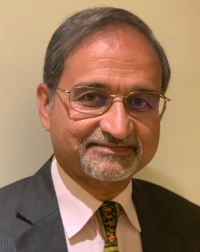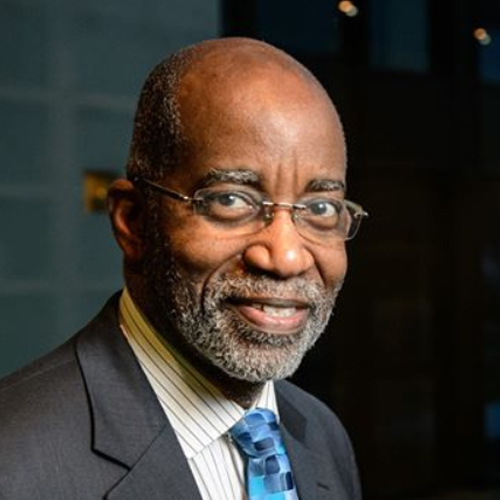Presidential Award
The president of the Global Alliance may elect to honor individuals who have demonstrated exemplary contributions to behavioral health and social justice.
Award Recipients
2024 | Shekhar Saxena, MD

Professor of Practice of Global Mental Health
Department of Global Health and Population
Harvard T.H. Chan School of Public Health
Dr. Saxena was honored for his leadership in advancing our understanding of innovations in global mental health. His advocacy for the inclusion of individuals with lived experience and of the broader community in global mental health is particularly notable.
Shekhar Saxena, MD, is professor of practice of Global Mental Health at the Department of Global Health and Population at the Harvard T.H. Chan School of Public Health. He worked with the World Health Organization (WHO), Geneva, for 20 years, the last of which he served as director of mental health and substance abuse. He was the technical lead within the WHO for the Mental Health Action Plan adopted by the World Health Assembly in 2013. Dr. Saxena is author of more than 350 academic papers. His expertise includes providing evidence-based advice and technical assistance to policy makers, businesses and civil society on mental health. He was a joint lead-editor of the Lancet Commission on Global Mental Health and Sustainable Development, 2018, and a member of GlobalMentalHealth@Harvard initiative. His areas of interest include public mental health policy, systems and social and economic determinants of mental health. He is an advisor to United for Global Mental Health and McKinsey Health Institute.
2020 | David R. Williams, PhD, MPH

Dr. David R. Williams (@D_R_Williams1) is the Florence and Laura Norman Professor of Public Health and Chair, Department of Social and Behavioral Sciences, at Harvard’s T.H. Chan School of Public Health. He is also a Professor of African and African American Studies at Harvard University. His prior academic appointments were at Yale University and the University of Michigan. He holds an MPH from Loma Linda University and a PhD in sociology from the University of Michigan.
Dr. Williams is an internationally recognized authority on social influences on health and has been invited to keynote scientific conferences in Europe, Africa, Australia, the Middle East, South America, and across the U.S. The author of more than 475 scientific papers, his research has enhanced our understanding of the ways in which race, socioeconomic status, stress, racism, health behavior, and religious involvement can affect mental and physical health. His research has delineated the conditions under which racism at both the interpersonal and the institutional level can adversely affect health. The Everyday Discrimination Scale that he developed is the most widely used measure of discrimination in health studies.
He has made important contributions to understanding the causes and consequences of mental health problems. He directed the South African Stress and Health Study, the first nationally representative study of the prevalence and correlates of psychiatric disorders in sub-Sahara Africa. This research provided a previously unavailable glimpse of the social distribution of psychiatric disorders in South Africa and the association between psychiatric disorders and a broad range of contextual factors. He was also a key member of the team that conducted the National Study of American Life, a large study of mental health disorders in the African American population in the U.S. and the first health study to include a large national sample of Blacks of Caribbean ancestry. His research has documented ethnic variations among blacks in mental health status, marked declines in the mental health of Caribbean Blacks with increasing length of stay and generational status in the U.S., and markedly elevated mental health risks for black Caribbean males.
He was elected to the National Academy of Medicine in 2001, the American Academy of Arts and Sciences in 2007, and the National Academy of Sciences in 2019. He has received Distinguished Contribution Awards from the American Sociological Association, the American Psychological Association and the New York Academy of Medicine. He was ranked as the Most Cited Black Scholar in the Social Sciences in 2008. In 2014, Thomson Reuters ranked him as one of the World’s Most Influential Scientific Minds. He has played a leadership role in raising awareness levels of inequities in health and interventions to address them and his research has been featured in the national print and television media and in his TED Talk.
2020 | Peggy Flanagan
Peggy Flanagan (@LtGovFlanagan) is Minnesota’s 50th Lieutenant Governor and as an enrolled member of the White Earth Band of Ojibwe, she is the highest-ranking Native woman to hold office. Her career is founded on the principles of giving back, particularly to children, families, communities of color, American Indians, and low-income and working people. As a former State Representative and community organizer, Peggy brings her experience with advocacy and coalition-building to the Lieutenant Governor’s office. She works in partnership with Governor Tim Walz to build One Minnesota.
She is an advocate for equity in education and early childhood policies for kids and a champion for the rights of immigrants, refugees, and indigenous peoples. Formerly, she was also the Executive Director of the Children’s Defense Fund, Minnesota Chapter.
2018 | Vikram Patel, MBBS, PhD
Dr. Patel received a Presidential Citation for Lifetime Achievement for his innovative efforts in bringing mental health care to low-resource communities. In elevating our understanding of the burden of mental disorders globally and their association with poverty and social disadvantage, Dr. Patel has demonstrated how community resources can be used effectively to deliver mental health prevention and treatment services, thereby making mental health care more accessible to all.
His work focuses on reducing the treatment gap for mental disorders in low resource countries through the generation of policy-relevant evidence on the burden and impact of mental disorders, the development and evaluation of interventions that can be delivered by lay health workers, the development of training programs to expand research and leadership in the area, and the communication of research on global mental health.
Dr. Patel is a professor of global health and social medicine at Harvard Medical School and the co-founder of Sangath, an NGO focused on mental health and family well-being in India. Additionally, he co-directs the Centre for Global Mental Health in London and was instrumental in the setup of the Movement for Global Mental Health, a network asserting mental health care as a basic human right. Learn more about Dr. Patel’s approach by watching his TED Talk.
2017 | Donald Wertlieb, PhD
Donald Wertlieb received a Presidential Citation for Lifetime Achievement for his contributions in understanding the complex processes by which children and families cope with adversity (e.g., marital disruption, chronic illness). Dr. Wertlieb has applied these understandings to the development of programs that foster resilience in community settings locally, nationally, and internationally. He has led partnership projects in Haifa, Israel (Mercaz Gil Center for Learning) and in Dnepropetrovsk, Ukraine (Educational Resource Center for Children with Disabilities).
Wertlieb is an applied developmental scientist with a background in clinical-developmental and pediatric psychology. He is Professor and former Chair of the Eliot-Pearson Department of Child Development at Tufts University, and the founding director of the Tufts University Center for Children and the Center for Applied Child Development. He is a former president of the Global Alliance for Behavioral Health and Social Justice (formerly the American Orthopsychiatric Association). He served on the steering group of the National Forum on the Future of Children and Families, a joint program of the National Academy of Science’s Commission on Behavioral and Social Sciences and Education (CBASSE) and the Institute of Medicine (IOM). Wertlieb also served as President of the Society of Pediatric Psychology, a professional membership organization of about 1,000 scholars and practitioners committed to the improvement of health services for children and families. In 2007, he received the Career Contribution Award for outstanding contributions to the advancement of psychology as a science and a profession from the Massachusetts Psychological Association as well as the APA Lee Salk Distinguished Service Award for outstanding contributions to pediatric psychology. He is the 2009 recipient of the Nicholas Hobbs Award for Child Advocacy from the American Psychological Association.
2016 | David Anderson
David Anderson received a Presidential Citation for Lifetime Achievement for his many innovative efforts on behalf of families in crisis. Anderson is a licensed clinical psychologist with more than 20 years experience in adolescent psychology.
As executive director of the Lydia Home Association, a Christian multi-service agency serving children and families, Anderson has thoughtfully and creatively developed a variety of programs designed to strengthen families so that they can care for their children. As the founder of Safe Families for Children, Anderson has developed an innovative approach to helping parents in crisis. Safe Families is a voluntary, non-coercive alternative to the child welfare system. The program temporarily places children with loving families, which enables their parents to address issues such as unemployment, drug or alcohol-rehabilitation, family violence, illness, or incarceration. Safe Families gives parents the opportunity to address issues proactively without a fear of losing the custody of their children. Unlike crisis programs or shelters, temporary stays in Safe Families are not limited by an arbitrary time frame. Rather, host families care for children as long as it takes a parent to get back on his or her feet. Host families also serve as mentors and role models for biological families. These family-to-family connections form a true community safety net in a way that government cannot. Safe Families connects a child and his or her family to a broader community in a way that foster long-term relationships.
